Own or Rent for a single woman retiree?
User
8 years ago
Featured Answer
Sort by:Oldest
Comments (41)
Related Discussions
Help this old confused woman~~~PLEASE
Comments (21)Okay....I'll try to explain better~~~ I own a 28,000 SF lot on the lake in our "back home" town.. IF, IF, IF I would decide to go the duplex route, the other lady would be BUYING half of my lot...we would EACH pay the entire amount for OUR OWN BUILD. I WOULD NOT be renting to her. We both would be responsible for our own half of the duplex....just as it would be if I bought into the condo. No renting is permitted by the HOA...everyone MUST OWN their own unit~~ NO, NO, NO, I would never build anything to rent out...I do not want to be a land-lord to anyone. Conods and duplexes for the over 55 are in high demand because it is a very beautiful area and only that age group will live there....so no noise, etc. of teen-agers etc. The lot is so large that it will require a great deal of mowing expense, etc.....and of course, taxes will be greater on a single house than a duplex. Just so many things to think of.....and IF the builder can do Summerfield's last revised plan for a reasonable price, I do plan to do it...it would be my first choice, but if the bid price is more than I can handle, I'll see about doing a 2/2 duplex. LL~~ didn't Summerfield do a great job?...I emailed her and told her the changes that I would like, and woohoo, she came up with it for me :-) You all are so kind....and thanks....See MoreHousewarming Gift - 30-ish Single Woman
Comments (17)How about a picture frame engraved with My First Home Est: 2017 and a very nice picture of the house or with her standing in front of her door with her new keys. With that I would also include a gift card to one of these places. Amazon, Bed Bath and Beyond or any place that has nice housewares. I bought a new house last year and even though I had things from my old home I found a lot my stuff did not quite fit in the new house. Colors weren't right or things were just plain worn out and I found I was hitting up Amazon and Bed Bath and Beyond a lot for bedding, towels, small kitchen stuff like replacing my old ugly cookie sheets, picture frames and odds and ends like that....See MoreOwn or rent?
Comments (35)My house is not paid for - it could have been multiple times. But I have used the equity in it to make major upgrades that I could never have made out of my income, and with the first refinance, pay of a ton of credit card debt that was accumulated when we had two children in college - plane tickets, car repairs - you name it. It all added up, and yes, we were living beyond our means in some ways. I've always been able to refinance and actually LOWER my monthly payment as interest rates were falling. My very first mortgage was not a fixed rate, and it was for 30 years. Luckily for us, interest rates continued to fall and when the time was right about 12 years later, we refinanced with a fixed rate 15 yr mortgage. We paid off every single penny of credit card debt and have never again had any. Multiple refinancing later, all were fixed rate 15 yr mortgages, and all made good improvements to the house. I could not possibly rent a 3 bedroom house in as nice a neighborhood as I now live, for anywhere close to my my monthly mortgage payment, plus property taxes and insurance. BUT..I bought this house 33 years ago when prices were way lower than today in this neighborhood, and I still have a very low mortgage - about 20% of the value of my house. When the time comes (and it will come one day in the near future) that I can no longer live in this house, it will be sold and the money left after paying off the mortgage/real estate fees etc should pay for about 5 years in a very good assisted living facility. After that, I will have to dig into my IRA and other savings, if I'm still living. But I'm not like most people. Most don't buy and stay in a house for 30+ years. They buy a house that is more than they truly can afford, and they move every few years, usually when the house starts needing expensive repairs. And they just keep moving. While building up equity in a house is not a sure thing, neither is investing in any financial product. They key is not buying at the top of the market, buying what one can truly afford, and staying where one is. That is not always possible for home buyers today....See MoreAm I the only woman who could care less about becoming a grandmother?
Comments (53)I always knew I wanted to have children. I'm an only child and I used to beg my parents for a brother or sister. My father was one of 10 and my mother one of 6, so perhaps that's why they only had 1! I also knew I would never have just one child. I would have been very disappointed if I had not had grandchildren. It's a lovely thing to see ones own children being wonderful parents. I adore my grandchildren but I told DD that while we would enjoy babysitting from time to time, I did not want a regularly scheduled time - far too confining. But a call to see if we'd be willing to take them? Absolutely! I think I'm getting the younger next week while they take the elder to college! One of my grandchildren is adopted and I love him just as much as the others. My late husband had an adopted younger sister and so it seemed very natural to us both. He's a very dear boy. Having said I didn't want a regular time, I did agree to help DD when her eldest started 1st grade (he did Kindergarten at his nursery school). She asked me if I would come over the first two weeks of school, when school got out and just be sure DGS got organized and did his homework. By this time, her husband was a SAHF but he is so severely ADHD that he would not be good at doing this. I was glad to help her out and did so. After two weeks, she said that DGS liked me being there and would I be willing to continue? My husband had died the year before and I was pretty much at loose ends, so I said yes. I did this Mon-Thurs until 2nd son finished 5th grade. We all enjoyed the time together. DD and I have very similar parenting styles, and similar philosophies about homework being the responsibility of the student, not the parent. I was just there if they had a question, to sign that I'd seen their homework/graded work etc. I taught them to look things up, first on my iPhone and later on my iPad. I often took a book to read. If they had trouble, I helped them figure it out. If they wanted to be quizzed, I quizzed them. I don't know if I would have done this if DH had still been alive. Actually, I know it would have been DH who would have done this - he was a teacher and would have loved it. But I very much enjoyed the bond that we got from this. I was not tied down in any way - if I were sick, the weather was horrid, or was going to be out-of-town, I was under no obligation. I also rent a house for 4 weeks each summer and DD's boys are always there the entire 4 weeks. When they were young, there was a babysitter along as well - I was not missing my beach time to stay home with napping children! Parents were there, too, for varying times. It's been very special for me and when I come back home, I go into "boy-withdrawal"! I'm quite comfortable being alone, but I sure enjoy their company and all their friends in and out all the time. I love that I can do this for them. I have a couple of friends whose children will never have children. They are greatly disappointed as they had looked forward to doing various thing with grands. They certainly respect their children's decisions, but are sorry that this is what they want....See MoreUser
8 years agolast modified: 8 years agoPat Brown
8 years agoUser
8 years agolast modified: 8 years agotete_a_tete
8 years agotete_a_tete
8 years agobry911
8 years agolast modified: 8 years agobry911
8 years agolast modified: 8 years agoC Marlin
8 years agotete_a_tete
8 years agotete_a_tete
8 years agolast modified: 8 years agobry911
8 years agolast modified: 8 years agotete_a_tete
8 years agoUser
8 years agolast modified: 8 years agotete_a_tete
8 years agolast modified: 8 years ago
Related Stories
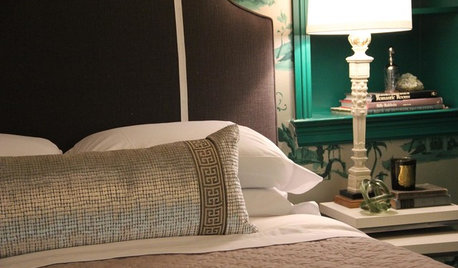
HOME INNOVATIONSConsidering Renting to Vacationers? Read This First
More people are redesigning their homes for the short-term-rental boom. Here are 3 examples — and what to consider before joining in
Full Story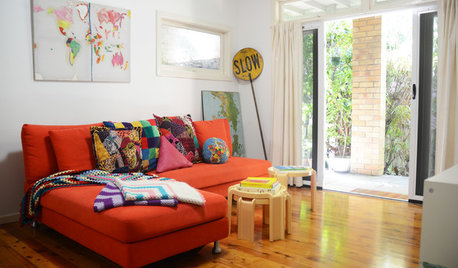
HOUZZ TOURSMy Houzz: An Artist Maps Out Her Own Haven of Happiness
A 1960s Australian vacation lodge is home to an artist-curator whose vintage collectibles fit beautifully in the seaside abode
Full Story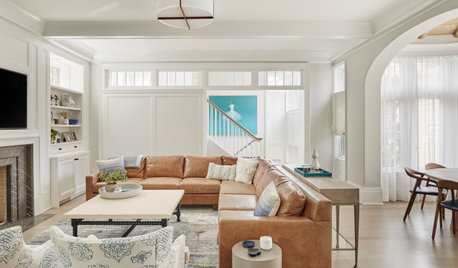
HOUSEKEEPINGChoose Your Own Spring Cleaning Plan
Instead of trying to do it all, pick one of these six cleaning approaches that’s right for you now
Full Story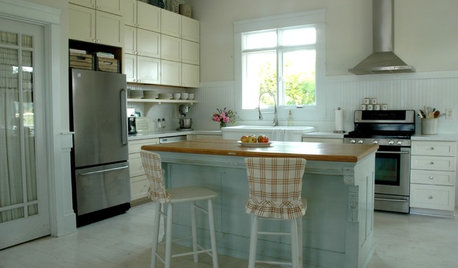
KITCHEN DESIGN6 Kitchen Fixes for Nomads
Renting? Some Affordable Ways to Make That Kitchen Feel Like Your Own
Full Story
LIFEHow to Handle Inherited Things You Don’t Really Want
Whether you’ve inherited a large collection of items or a single bulky piece of furniture, it’s OK to let it go if you don’t need or want it
Full Story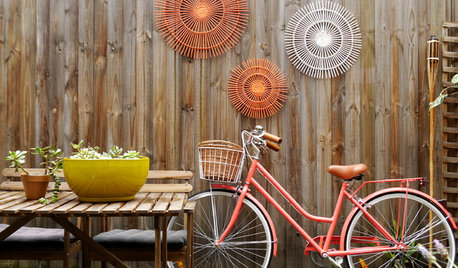
LIFE10 Reasons to Be Happy You’re a Renter
Homeownership has many benefits, but there are upsides to not owning a home too
Full Story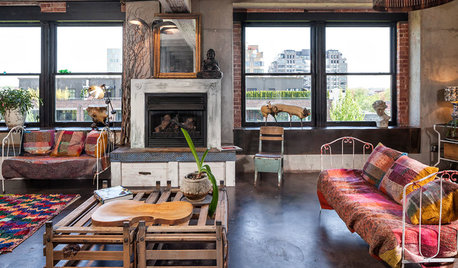
LOFTSHouzz Tour: 12 Years of Tinkering Produce an Amazingly Artful Loft
Major DIY efforts turn 3 units in a former Portland factory into a single home brimming with personality
Full Story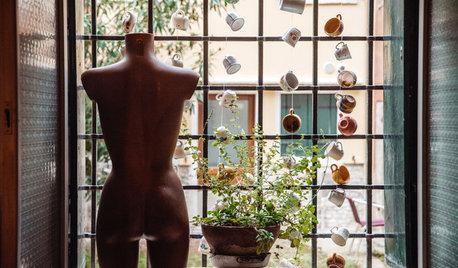
HOMES AROUND THE WORLDMy Houzz: In Italy, a Kind of Design Poetry Amid Books and Mannequins
This Venetian writer-professor’s apartment is its own magical universe of objects, creativity and memories
Full Story
FUN HOUZZGuessing Game: What Might Our Living Rooms Say About Us?
Take a shot on your own or go straight to just-for-fun speculations about whose homes these could be
Full Story
REMODELING GUIDESYou Won't Believe What These Homeowners Found in Their Walls
From the banal to the downright bizarre, these uncovered artifacts may get you wondering what may be hidden in your own home
Full Story


User